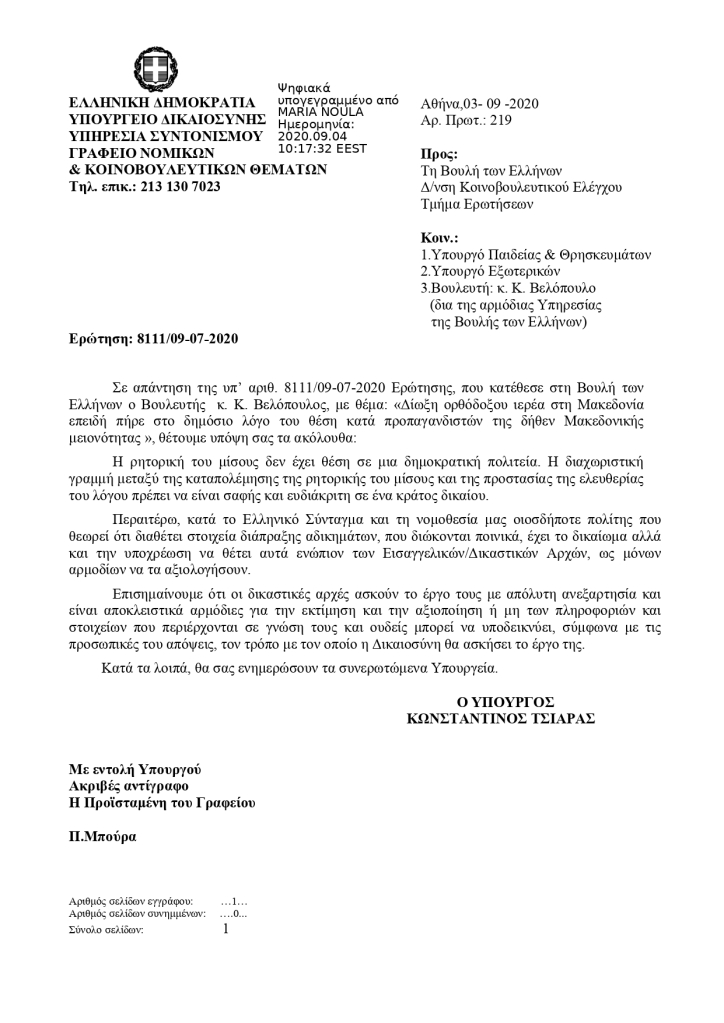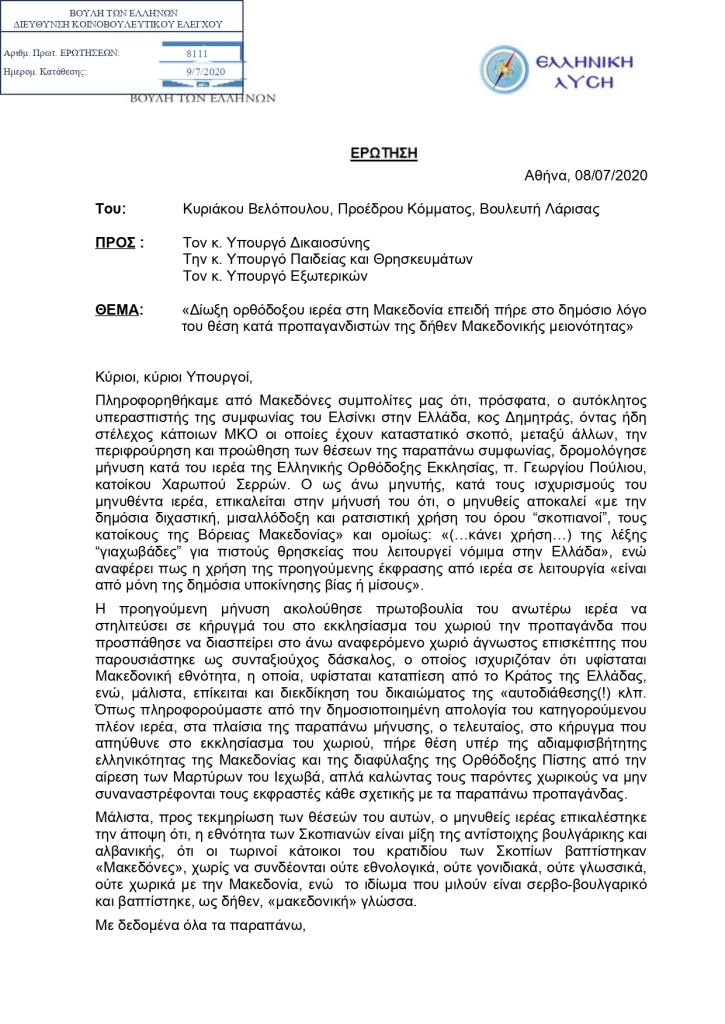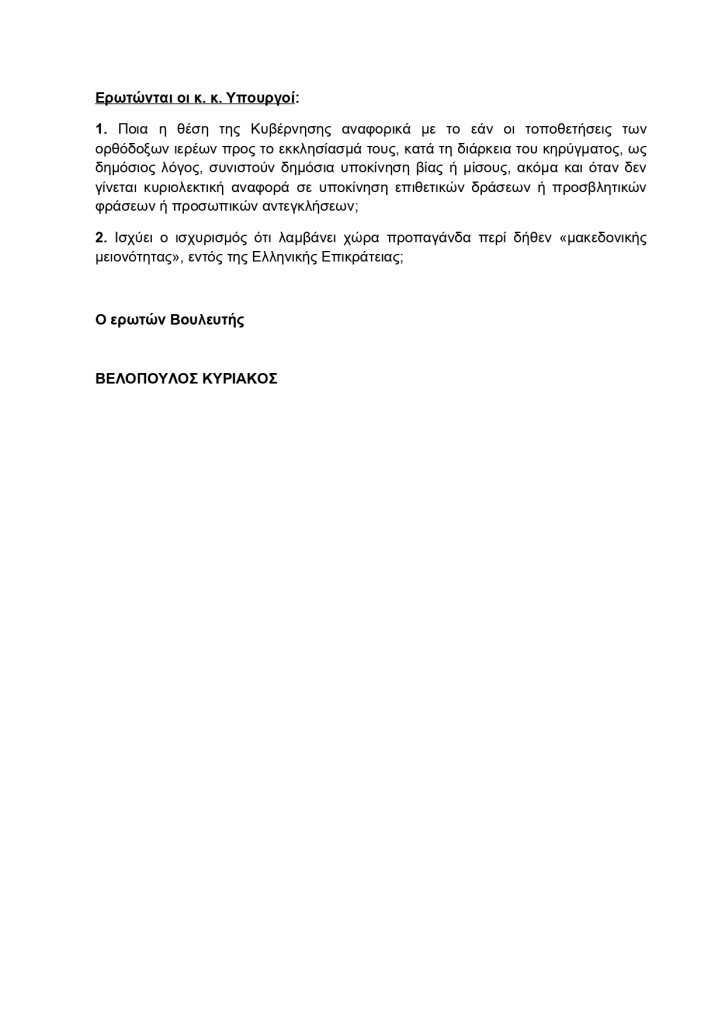- Date of incident: 10-9-2020
- Location: Feres, Evros
- Law enforcement involved: Greek Police Officers / Greek Army
- Number of people pushed back: 30
- Nationalities : Pakistani, Syrian, Iraqi, Moroccan, Algerian, Somalian
- How many had documents for sure: –
- Demographics (women, children, etc): a family, a woman with their children and other children involved
- Method of expulsion: People were driven to Evros/ Meriç river and they were forced to cross the Greek/ Turkish border.
- Documenting organisation: Border Violence Monitoring Network (BVMN)
- Description: People were driven to Feres’ army camp, after being threatened and robbed. Then, they were driven to Evros/ Meriç river, where they were forced to cross the river in a dinghy, along a rope stretched from one bank to the other.
10/09/2020
“YOU ARE MUSLIM […] AND WE ARE CHRISTIAN, SO WHY ARE YOU COMING TO OUR COUNTRY, WE DON’T NEED YOU HERE BECAUSE YOU ARE MUSLIM”
Date and time: September 10, 2020 10:30
Location: Feres, Greece
Coordinates: 40.905925, 26.254513
Pushback from: Greece
Pushback to: Turkey
Demographics: 30 person(s), age: 28, from: Pakistan, Syria, Iraq, Morocco, Algeria, Somalia
Minors involved? Yes
Violence used: beating (with batons/hands/other), kicking, pushing people to the ground, insulting, threatening with guns, forcing to undress, theft of personal belongings
Police involved: 6 Greek police officers at initial arrest
Taken to a police station? yes
Treatment at police station or other place of detention: photos taken
Was the intention to ask for asylum expressed? Unknown
Reported by: Anonymous Partner
ORIGINAL REPORT
The respondent is a 28-year-old man from Algeria. On September 9th at 8 pm, he was with a 21-year-old Algerian male friend and three Pakistani men aged 19 to 30 approximately 10 kilometres away from the Greek-North Macedonian border. According to the respondent, they were here.
At this location, they were stopped by 6 Greek police officers, who approached with two cars from both sides of the road, blocking it. Of these officers one was female, five were male. The woman and one man were dressed in civilian clothes, two wore blue police uniforms and the other were dressed in military fatigues and blue police jackets. The cars were Dacias (one Dacia Laguna and another similar model) with tinted windows, each had no police insignia. However, one vehicle had a flashing blue light and the respondent could see radio intercoms inside.
One of the policemen fired several shots into the air to intimidate the group and to prevent them from fleeing sideways towards the nearby tracks or into the forest. He also shouted at them to sit down, which they did. When the police arrived at the respondent’s group, one officer kicked him in the back and ordered him to stand up, whereupon he asked him about his nationality. The respondent said he was from Palestine to which the policeman gave a dismissive reply: “You look like a Moroccan.” He then started beating him with his baton and kicked him repeatedly. The other members of his group were also beaten with fists and batons.
Additionally, one officer insulted a member of the group with reference to his religion:
“You are Muslim […] and we are Christian, so why are you coming to our country, we don’t need you here because you are Muslim”
After the assault, their hands were zip-tied and they were divided between the two cars. Our respondent was sitting in a car with two Pakistanis. They were then taken to a police station in a drive that lasted 15 minutes. The duration of the drive, together with the site of apprehension, suggests that they were brought to the Polykastro police department.
There the police officers exited the car and left the men locked inside the vehicle for half an hour. The respondent reported that it was too cramped for three people and also very hot because the car was parked in the sun. After the wait, the police officers finally returned and took pictures of the respondent and his group.
He and the two Pakistanis were then brought in the same vehicle to Drama to the Paranesti detention centre. They arrived at 11 pm. In Drama, they were first taken to a caravan, where the police searched their bags, clothes and backpacks. At that time, there was also someone from Morocco in the same caravan, who told them that they were in Drama, as the respondent and his group themselves did not know where they were. This Moroccan person left the caravan only a few minutes later. At that point, the police officers who brought them from Polykastro had left, except for the two officers with army pants who were still guarding them in Drama.
Following the search, police confiscated their valuables, in the case of the respondent 800€ and his smartphone – none of which were returned. They were then forced to strip to only a T-shirt and shorts. The respondent saw plenty of other clothes in the caravan, but when he tried to take some of them, he was slapped in the face by one police officer. When he attempted to retrieve his money from the table where they put it, one officer struck him with a baton.
The men had to sleep one night on the floor of the caravan, which was monitored by cameras, without a blanket.
“it was so cold without any blankets and any beds; they were sleeping on the ground”
The next evening, at 7 pm, the respondent and were put in the back of a white van, which did not have any police insignia on it, along with nine others from Algeria, Morocco and Iraq. They were locked in the back of the van, which was lined with metal and resembled a cell. They were, however, able to sit as the van had chairs in the back. The driver of the van was a Greek police officer wearing a Greek police uniform and with him were the same two officers with army pants who had apprehended the respondent near Polykastro.
They were driving for approximately two and a half hours before reaching a place, that the respondent described as following:
“There is […] close to this army station, the train tracks, so close to it. There are three cells and there are offices on the opposite side of the cells and there is barboil around the place, that’s how it was looking at night.”
As the respondent reported, this army camp is located near Feres.
The respondent’s group was brought inside the camp into a big room, where they found 20-30 other people, including a Somalian family and other women with their children. They were guarded by “huge” men wearing green army uniforms, balaclavas and bulletproof vests. These military personnel told them to strip completely naked and afterwards beat them with batons. The respondent stated:
“he doesn’t care if he hits you in your head or in your face, they are using metal sticks, big metal sticks, […] my body was blue from this beating”
The women and children were spared from this beating.
After this episode, they were brought to the Evros river with two army trucks. The respondent was in the back of one truck together with 18-20 people, among them Syrians, Pakistanis, Moroccans, Algerians and two Somalian teenage sisters, one reportedly “looked 14 years old”. The two trucks were driven by people in military clothes and were followed by one car.
At the river, there were 6 officers wearing military clothes, one of whom was communicating to the respondent’s group in English, and one other man with black clothes and balaclava, who was seemingly communicating to someone else with a headset.
At that place, they had to cross the river in a dinghy, along a rope stretched from one bank to the other. There was only one dinghy, which was driven by two Pakistanis wearing green safety vests. On every crossing, 9-10 people crossed the river, the women and children were the last ones to cross.
In Turkey, the pushed back group encountered the Turkish army, but the respondent himself fled. He continued walking barefoot for two hours until he reached a village. He slept in the mosque for the night, before making his way back to Istanbul the following day.
The location of the pushback was estimated by the respondent to be here.



